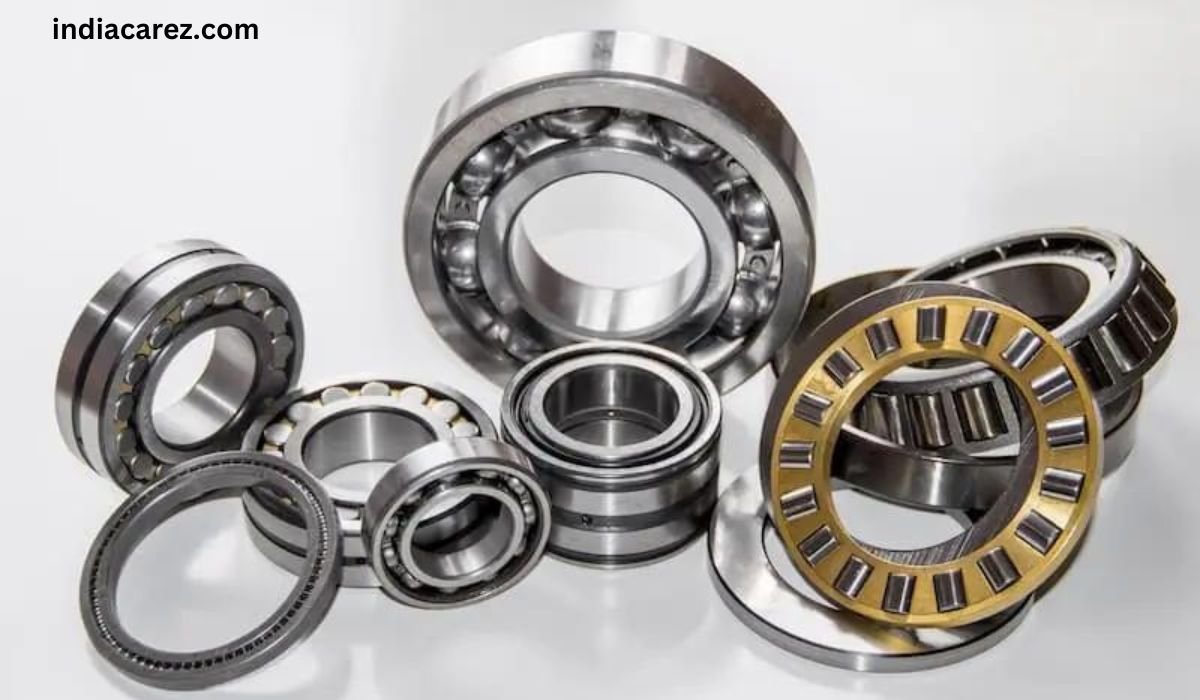Bearings are an essential component in machinery, playing a critical role in ensuring smooth and efficient operation. These mechanical elements reduce friction between moving parts, allowing for seamless rotation and movement. This article delves into the function of bearings, the various types available, their importance in machinery performance, the industries that heavily rely on them, and the future trends in bearing technology.
Introduction to Bearings and Their Function
Bearings are designed to enable rotational or linear movement while minimizing friction and handling stress. They support the rotating shafts and other moving parts, ensuring that machinery operates smoothly and efficiently. The primary functions of bearings include:
- Reducing Friction: Bearings decrease the friction between moving parts, which enhances efficiency and reduces wear and tear.
- Supporting Loads: They support both radial (perpendicular to the shaft) and axial (parallel to the shaft) loads.
- Maintaining Alignment: Bearings help maintain the alignment of components, preventing misalignment that can lead to machinery malfunction or failure.
Different Types of Bearings and Their Specific Uses
There are several types of bearings, each designed for specific applications and load requirements:
Ball Bearings
Ball bearings are the most common type and are used in a wide range of applications. They consist of balls between two races, which reduce friction and handle both radial and axial loads. Ball bearings are found in household appliances, vehicles, and industrial machinery.
Roller Bearings
Roller bearings use cylindrical rollers instead of balls and are designed to handle heavier loads. They come in various designs, including:
- Cylindrical Roller Bearings: Ideal for high radial loads and moderate axial loads.
- Spherical Roller Bearings: Can accommodate misalignment and are used in heavy machinery like mining and construction equipment.
- Tapered Roller Bearings: Handle both radial and axial loads, commonly used in automotive applications.
Thrust Bearings
Thrust bearings are designed to handle axial loads. They come in different forms, such as ball thrust bearings and roller thrust bearings, and are used in applications like automotive transmissions, marine engines, and electric motors.
Needle Bearings
Needle bearings have long, thin rollers that can handle high radial loads in a compact design. They are commonly used in automotive applications, such as gearboxes and transmissions, as well as in industrial machinery.
Self-Aligning Bearings
Self-aligning bearings have two rows of balls or rollers and a common spherical raceway in the outer ring. This design allows them to accommodate misalignment between the shaft and the housing. These bearings are used in applications where proper alignment cannot be guaranteed, such as in agricultural machinery and conveyor systems.
Importance of Bearings in Machinery Performance and Efficiency
Bearings are crucial for the performance and efficiency of machinery. Their primary benefits include:
- Enhanced Efficiency: By reducing friction, bearings ensure that machinery operates smoothly, which enhances overall efficiency and reduces energy consumption.
- Extended Equipment Life: Bearings minimize wear and tear on moving parts, extending the lifespan of machinery and reducing maintenance costs.
- Improved Performance: High-quality bearings ensure precise movement and alignment, which improves the performance and reliability of machinery.
- Noise Reduction: Bearings help reduce vibration and noise, contributing to a quieter and more comfortable working environment.
Industries That Rely Heavily on Bearings
Bearings are indispensable in a wide range of industries, including:
Automotive Industry
The automotive industry extensively uses bearings in engines, transmissions, wheels, and other components to ensure smooth and reliable operation.
Aerospace Industry
Bearings in the aerospace industry must withstand extreme conditions and high loads. They are used in aircraft engines, landing gear, and control systems.
Industrial Machinery
Industrial machinery relies on bearings, including CNC linear bearings, for efficient operation. Bearings are used in conveyor systems, pumps, compressors, and electric motors.
Medical Equipment
Bearings in medical equipment must be highly reliable and precise. They are used in devices such as MRI machines, surgical tools, and diagnostic equipment.
Renewable Energy
Bearings play a critical role in wind turbines and solar tracking systems, ensuring efficient and reliable energy production.
Future Trends in Bearing Technology
The future of bearing technology is marked by continuous advancements aimed at improving performance, efficiency, and sustainability:
Smart Bearings
Smart bearings equipped with sensors can monitor their own condition and performance in real-time. This innovation allows for predictive maintenance, reducing downtime and extending machinery life.
Advanced Materials
The use of advanced materials, such as ceramics and composites, enhances the durability and performance of bearings, making them suitable for extreme conditions and high-stress applications.
Eco-Friendly Solutions
Eco-friendly bearing solutions, such as lubrication-free and low-friction designs, align with the growing demand for sustainable and energy-efficient technologies.
Additive Manufacturing
Additive manufacturing, or 3D printing, enables the production of complex bearing designs with improved performance characteristics. This technology allows for greater customization and faster production times.
Conclusion
Bearings are a crucial part of modern machinery, vital for reducing friction, supporting loads, and maintaining alignment. Their significance spans various industries, and advances in technology promise to enhance their performance and sustainability. As machinery evolves, bearings will continue to be essential for efficient and reliable operation.











